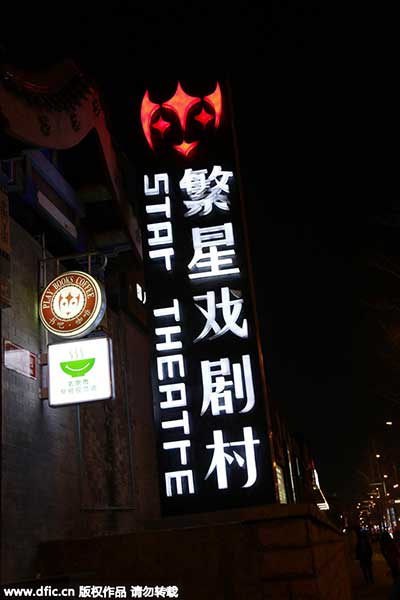 |
|
[Photo/IC] |
Small and innovative
In addition to audience interaction and contemporary content, smaller theaters also have lower costs, creating room for innovation.
Chinese traditional operas have taken to smaller theaters to experiment and adapt for a younger audience.
On the same frigid night when audiences filled the seats for a love story, a national opera festival kicked off in another Star Theater venue featuring more than ten opera adaptations.
"San Cha Kou," the opening opera, combines the stories, movements and music of traditional Chinese opera with lines that reflect modern social life.
"The audience's interest in traditional opera will rise due to these new elements," Fan Xing said.
As for the future of smaller theaters, many are optimistic.
Zhang Yiwu, the PKU professor, is one of them. "Smaller theaters will continue to prosper. With Chinese people's spending power growing, there might be smaller theaters succeeding in lower-tier cities very soon," Zhang said.
Meanwhile, with the culture industry a priority in the country's 13th Five-Year Plan, local governments are expected to highlight theater development.
The government of Dongcheng District has already started to boost the industry with subsidies to drama troupes and theaters. The local government has also held lectures and salons in communities to increase theater's popularity.
With favorable policies for smaller theaters, Fan Xing believes that in the next five to ten years, audiences will grow and traditional operas will see a resurgence.
"By then, no one will consider Beijing opera an old-fashioned thing anymore," Fan said.
|
|
|
|
|
|
|
|
